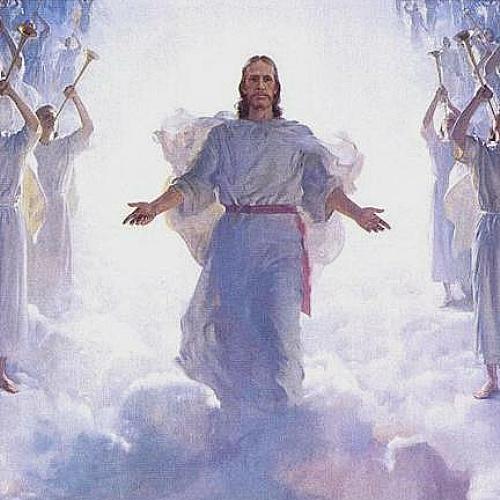
Acts 7:35, The Angel.
In Acts chapter seven verse 35 and the following several verses, Stephen makes a reference to an Angel. To whom is he referring: to YHVH the Father or YHVH the Son who became Yeshua the Messiah?
Angel is the Greek word angelos which has several meanings including the stereotypical meaning of the word angel. But the word angelos as well its Hebrew equivalent malak can also refer to a human messenger as well as to a divine messenger such as YHVH, the Word of Elohim or the preincarnate Yeshua the Messiah, as was the case with the “Angel” or Divine Messenger or YHVH who spoke to Moses from the burning bush in Exodus chapter three.
This same Divine Messenger or YHVH spoke to the Israelites from Mount Sinai when giving the children of Israel the Torah-law as Stephen state in verse 38.
Elsewhere, Paul goes on to say that the same Divine Entity, who later came to be known as Yeshua the Messiah, was the One who lead the Israelites in the wilderness and gave them water from the rock (1 Cor 10:4).
Moreover, Yeshua clearly states in John 5:37 that the Israelites did not hear the voice of his Father, YHVH the Father, in the wilderness. Thus, whose voice did they hear? Who was the Messenger or “Angel” to which Stephen makes reference in this verse? It was none other than the preincarnate Yeshua the Messiah who was the Word of Elohim to which John makes reference at the beginning of his Gospel (John 1:1) who become the Messiah (John 1:14).
Finally, in John 8:58, Yeshua states that he was the I AM of Exodus 3:14 that spoke to Yeshua out of the burning bush; Yeshua is YHVH the Son as opposed to YHVH the Father. The fact Yeshua was making the connection between himself and the I AM of Exodus is the reason that the Jews picked up stones in an attempt to kill Yeshua; they viewed his statements as blasphemous, since he was claiming to be deity.
Thus, when we connect all of these statements together by Stephen, Paul, John and Yeshua, we see that Yeshua in his preincarnate state, and not YHVH Elohim the Father, who was the God of the Old Testament who spoke to the patriarchs, to Moses as well as to the prophets.
The fact that Yeshua was the part of the Godhead who was the God of the Old Testament and not the Father (per se or directly) is contrary to what the mainstream church teaches and what most Christians believe.
With this in mind, how does the fact that Yeshua or Jesus in his preincarnate state as the One who gave the Israelites the Torah-law from Mount Sinai challenge the idea that the same Divine Being who later came as Yeshua the Messiah came to do away with the same Torah-law as the mainstream Christian church teaches? Is this prevalent teaching in Christianity not incongruent with the facts of the Bible? How does the fact that Yeshua in his preincarnate state gave the law to the Israelites change how one views “the Law of Moses?” Similarly, does YHVH’s statement in Malachi 3:6 that “I am YHVH, I do not change” as well as the statement in Hebrews 13:8 that “Yeshua the Messiah is the same yesterday, today and forever” not make more sense with respect to YHVH’s Torah-law, which is his unchanging and immutable standard of righteousness for all people for all time?
It is time for honest and truth-seeking Bible students and disciples of Yeshua to question and challenge many long held church traditions that are contrary to the plain and simple Truth of the Bible, and to bring their thinking and lifestyles into alignment with Truth!
Acts 7:37, A Prophet. Stephen is pointing out to the Jews that Yeshua was the fulfillment of Moses’ Deuteronomy 18:15 prophecy that “YHVH will raise up for you a Prophet like me from your midst, from among your brethren. Him you shall hear….”
Acts 7:38, He. Who is the “he” that Stephen is referring to here: the Prophet or Moses? The antecedent of he must be Moses, since in the same sentence he is juxtaposed with “the Angel.” As we discuss in our notes in verse s 35 and 37, that “Angel” was none other than the preincarnate Yeshua the Messiah.
Acts 7:53, Angels. Or human messengers, since this can be the meaning of the Greek word angelos.


This is clear Truth based on the Word of YHVH. Psalm 119:160 and John 17:17
Hallelujah! I know several believers who are unsure of the fact that Yeshua is YHVH in the flesh. I started praying for them to be released from the delusion that has gripped them.